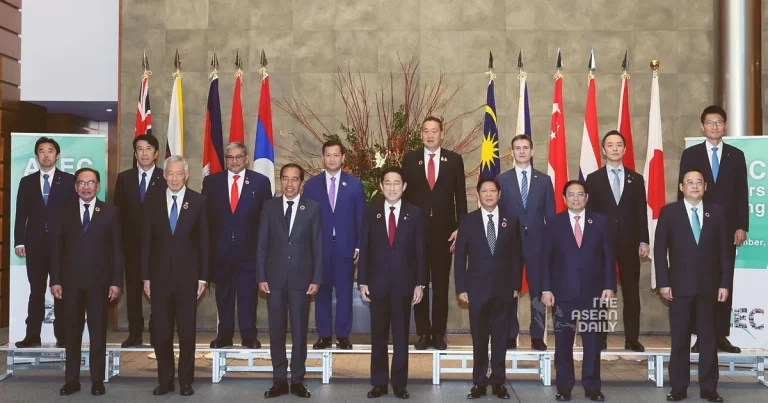20-12-2023 (TOKYO) The Asian Zero Emissions Community (AZEC), spearheaded by Japan, convened its inaugural summit in Tokyo on Monday, solidifying the imperative for a diverse and practical approach to achieve the fundamental tenets of decarbonization, economic development, and energy security.
Participating in the meeting alongside Myanmar were representatives from nine ASEAN member states, with Australia’s representation provided by Ambassador to Japan, Han Jiasi.
Japanese Prime Minister Fumio Kishida introduced the concept of the “Asia Zero Emissions Community” in January of the previous year, emphasizing the unique challenges faced by the Asian region, including some countries’ heavy reliance on coal-fired power generation and geographical constraints hindering rapid renewable energy development. The AZEC aims to establish a balanced and stable energy supply, crucial for ASEAN’s economic growth, while advancing decarbonization.
Prior to the summit, Prime Minister Kishida stated, “AZEC is a platform for countries to collaborate and achieve sustainable development. We are willing to collaborate with like-minded nations to address decarbonization. The goal is a triple breakthrough, achieving decarbonization, economic growth, and energy security simultaneously. Massive funds are required for decarbonization in Asia, but the establishment of AZEC aims to attract global funds to Asia, creating a new expansive market for decarbonization.”
Taking into account the individual circumstances of each nation, the AZEC agreement has gained widespread acceptance. This is particularly noteworthy given the distinct stances on phasing out fossil fuels observed during the 28th United Nations Climate Change Conference (COP28) earlier this month.
The joint statement from the summit underscored the need for “decarbonization to be achieved through diversified and realistic paths, with a focus on economic development.” It outlined recommendations for promoting natural energy sources such as solar cells, offshore wind power, and the deployment of small modular reactors (SMRs) for next-generation nuclear power developed in Japan. The statement also advocated for the use of hydrogen, ammonia, and biofuels.
Japan has committed to providing new energy technologies, including hydrogen, biomass power generation, and cutting-edge technologies for the reuse of emitted carbon dioxide as resources. The proposed “Asia Zero Emissions Center” will be established in Jakarta, utilizing the East Asia and ASEAN Economic Research Institute set up by Japan as its base. This center will serve as the command tower for investigating and formulating country-specific decarbonization roadmaps. The goal is to use this strategic location to establish zero-emission industrial parks and other cooperative projects, build green supply chains, and expedite financial transformation.
Prime Minister Lee Hsien Loong, speaking at the first AZEC Leaders’ Meeting, emphasized the global imperative for nations to collaborate in achieving net-zero emissions, recognizing the unprecedented challenges posed by climate change. He stressed the need for joint efforts, highlighting that no single country or government can accomplish this goal in isolation.
Addressing the substantial capital investments required for decarbonization projects, Prime Minister Lee outlined the ongoing efforts with approximately 350 decarbonization-related projects between Japanese companies and participating countries. Japan announced its commitment to providing technical and financial support to developing countries through the Government Development Assistance (ODA) framework.




